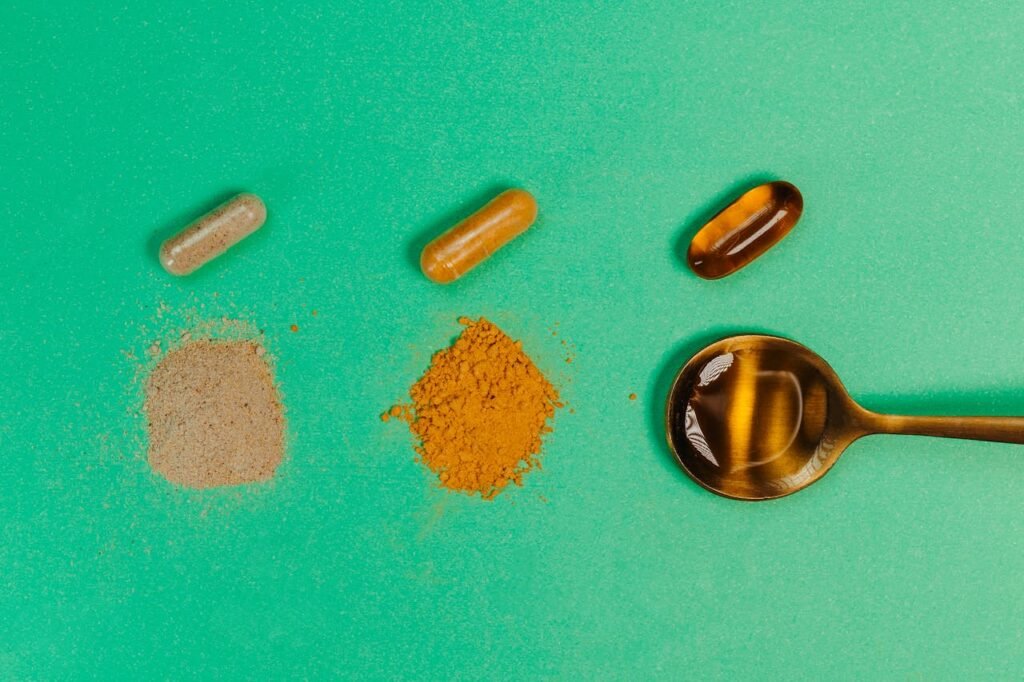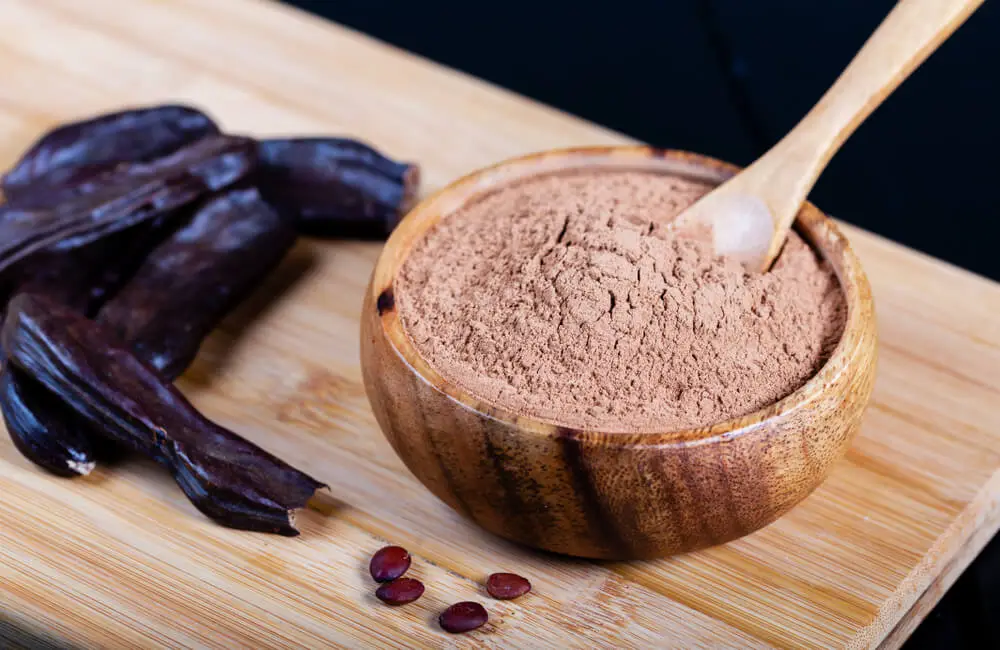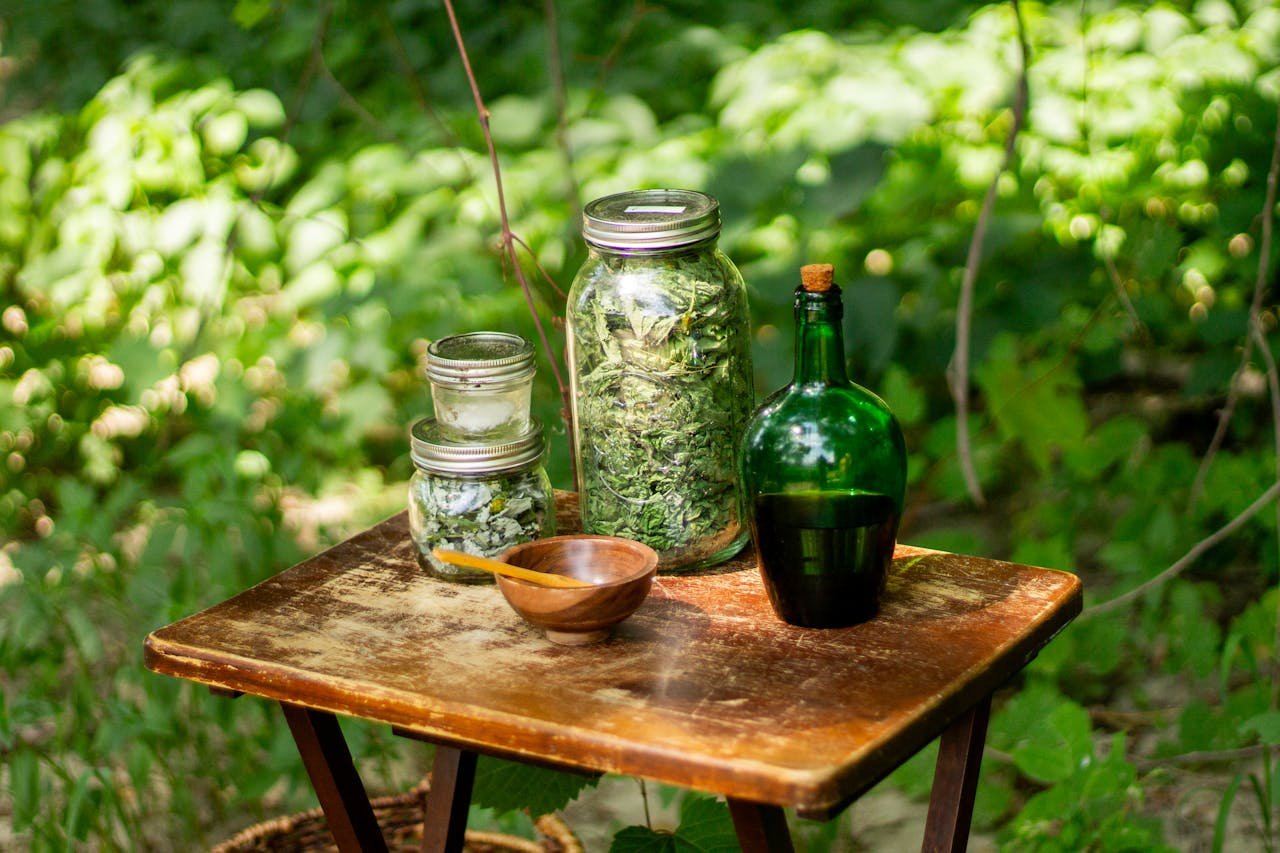Cold and flu season can take a toll on your health, leaving you feeling rundown and battling symptoms for days or even weeks. While there’s no surefire way to avoid catching a cold or flu, boosting your immune system with natural herbs can significantly reduce your risk. Many herbs contain potent antioxidants, vitamins, and compounds that strengthen the body’s defense mechanisms, helping you ward off infections and recover faster if you do get sick.

In this article, we’ll explore some of the most powerful immune-boosting herbs that you can easily incorporate into your daily routine. These herbs have been used for centuries in traditional medicine and are backed by modern science for their ability to enhance immune function and protect against viruses and bacteria.
1. Echinacea: The Immune System’s Best Friend
Echinacea is one of the most popular herbs for preventing and treating colds and flu. It’s well-known for its ability to stimulate the immune system, increasing the production of white blood cells that fight infections. Echinacea also has antiviral and anti-inflammatory properties, making it effective at reducing the severity and duration of cold symptoms.
Benefits of Echinacea:
- Stimulates the Immune System: Echinacea increases the activity of immune cells, helping your body respond to infections more effectively.
- Reduces Cold and Flu Duration: Studies show that taking echinacea at the first sign of a cold can reduce the duration of symptoms by up to 50%.
- Antiviral and Anti-inflammatory: Echinacea fights off viral infections and reduces inflammation, helping to relieve congestion and sore throats.
How to Use Echinacea: Echinacea is available in various forms, including capsules, tinctures, and teas. For immune support, take echinacea supplements during cold and flu season or when you feel symptoms coming on. A common dosage is 500-1000 mg daily.
2. Elderberry: A Powerful Antiviral Herb
Elderberry is a highly effective herb for both preventing and treating colds and flu. It’s rich in antioxidants, particularly anthocyanins, which are known to strengthen the immune system and protect cells from damage. Elderberry also has potent antiviral properties, specifically targeting the influenza virus, making it a go-to remedy for flu prevention.
Benefits of Elderberry:
- Boosts Immune Function: Elderberry enhances the body’s natural immune response, making it more resistant to infections.
- Fights the Flu Virus: Research has shown that elderberry extract can reduce flu symptoms and help the body recover faster.
- Rich in Antioxidants: Elderberry’s high antioxidant content helps protect the body from oxidative stress, which can weaken the immune system.
How to Use Elderberry: Elderberry can be taken as a syrup, extract, or tea. During flu season, take elderberry syrup daily as a preventive measure, or increase your dosage if you feel symptoms developing. A typical dose is 1 tablespoon of syrup or 500 mg of elderberry extract per day.
3. Astragalus: For Long-Term Immune Strength
Astragalus is an adaptogenic herb, meaning it helps the body adapt to stress and supports overall immune health. It’s particularly effective for preventing colds and flu by strengthening the immune system over time. Astragalus contains polysaccharides that boost white blood cell production and help the body resist infections.
Benefits of Astragalus:
- Supports Long-Term Immunity: Regular use of astragalus strengthens the immune system, making you less likely to catch colds and flu.
- Promotes White Blood Cell Production: Astragalus helps the body produce more white blood cells, which are essential for fighting infections.
- Adaptogenic Properties: As an adaptogen, astragalus also reduces stress, which can weaken the immune system.
How to Use Astragalus: Astragalus is most effective when taken over time as a preventive measure. It can be found in capsules, teas, or tinctures. For immune support, take 500 mg of astragalus root extract daily, or drink a cup of astragalus tea each day during the cold and flu season.
4. Garlic: A Potent Antimicrobial Herb
Garlic is a natural powerhouse when it comes to immune-boosting herbs. It contains allicin, a compound known for its antimicrobial, antiviral, and antifungal properties. Regular consumption of garlic not only helps prevent colds and flu but also reduces the severity of symptoms if you do get sick. Garlic also has anti-inflammatory properties, helping to relieve respiratory symptoms like congestion and coughing.
Benefits of Garlic:
- Antimicrobial and Antiviral: Garlic fights off infections by killing bacteria, viruses, and fungi that can cause illness.
- Boosts Immune Response: Studies show that garlic stimulates immune cells and enhances the body’s ability to fight off infections.
- Reduces Cold Symptoms: Taking garlic can shorten the duration of cold symptoms and reduce their severity.
How to Use Garlic: The best way to use garlic for immune support is to consume it raw or lightly cooked. You can add garlic to your meals, make garlic tea, or take garlic supplements. Aim to eat 1-2 cloves of raw garlic per day, or take a garlic supplement with at least 400 mg of allicin.
5. Ginger: For Immune and Respiratory Health
Ginger is a warming herb that has been used for centuries to treat colds, flu, and respiratory infections. Its immune-boosting benefits come from its antioxidant, anti-inflammatory, and antimicrobial properties. Ginger helps to clear mucus from the respiratory tract, reduce inflammation, and fight off infections.
Benefits of Ginger:
- Anti-inflammatory and Antioxidant: Ginger reduces inflammation and oxidative stress, both of which can weaken the immune system.
- Fights Respiratory Infections: Ginger’s antimicrobial properties make it effective at clearing up respiratory infections and reducing mucus.
- Improves Circulation: Ginger improves circulation, which helps the immune system function more efficiently.
How to Use Ginger: Ginger can be consumed fresh, in tea, or as a supplement. Drink ginger tea daily for immune support, especially during cold and flu season. You can also take ginger supplements, with a typical dosage being 250-500 mg of ginger extract per day.
6. Turmeric: A Potent Anti-Inflammatory Herb
Turmeric, known for its bright yellow color and active compound curcumin, is a powerful immune-boosting herb. Its strong anti-inflammatory and antioxidant properties make it a great choice for supporting immune function and reducing inflammation caused by infections. Turmeric also has antimicrobial benefits that can help protect against viral and bacterial infections.
Benefits of Turmeric:
- Reduces Inflammation: Curcumin in turmeric is highly effective at reducing inflammation, which can improve overall immune function.
- Antioxidant Properties: Turmeric’s antioxidants protect the immune system from free radicals and oxidative stress.
- Fights Off Infections: Turmeric has been shown to have antimicrobial effects, helping the body fight off viruses and bacteria.
How to Use Turmeric: To use turmeric for immune support, incorporate it into your cooking or take a curcumin supplement. Drinking turmeric tea or golden milk is another great way to consume this herb. For supplements, take 500-1000 mg of curcumin daily.
Conclusion
Incorporating immune-boosting herbs into your daily routine is a natural and effective way to prevent colds and flu, especially during peak seasons. Herbs like echinacea, elderberry, garlic, and astragalus offer powerful protection by strengthening your immune system and helping your body fight off infections. By using these herbs regularly, you can reduce your chances of getting sick and recover faster if you do catch a cold or the flu.
As you consider your immune health, remember that these herbs work best when combined with other healthy habits, such as eating a nutritious diet, staying hydrated, getting enough sleep, and managing stress. A holistic approach that includes both herbal support and a healthy lifestyle will give you the best chance of staying healthy all year round.









